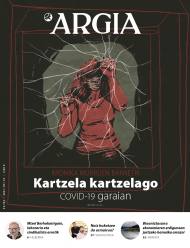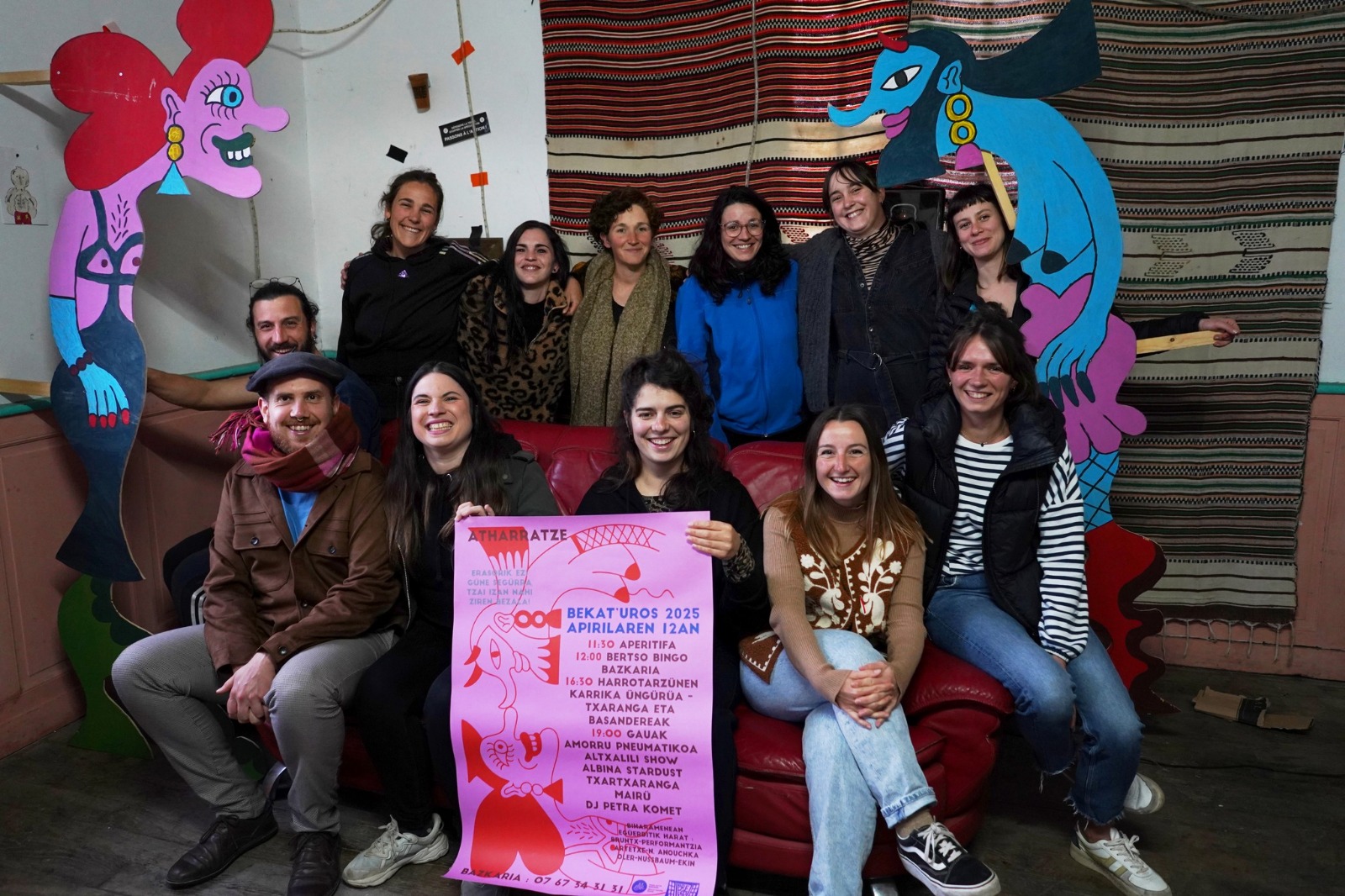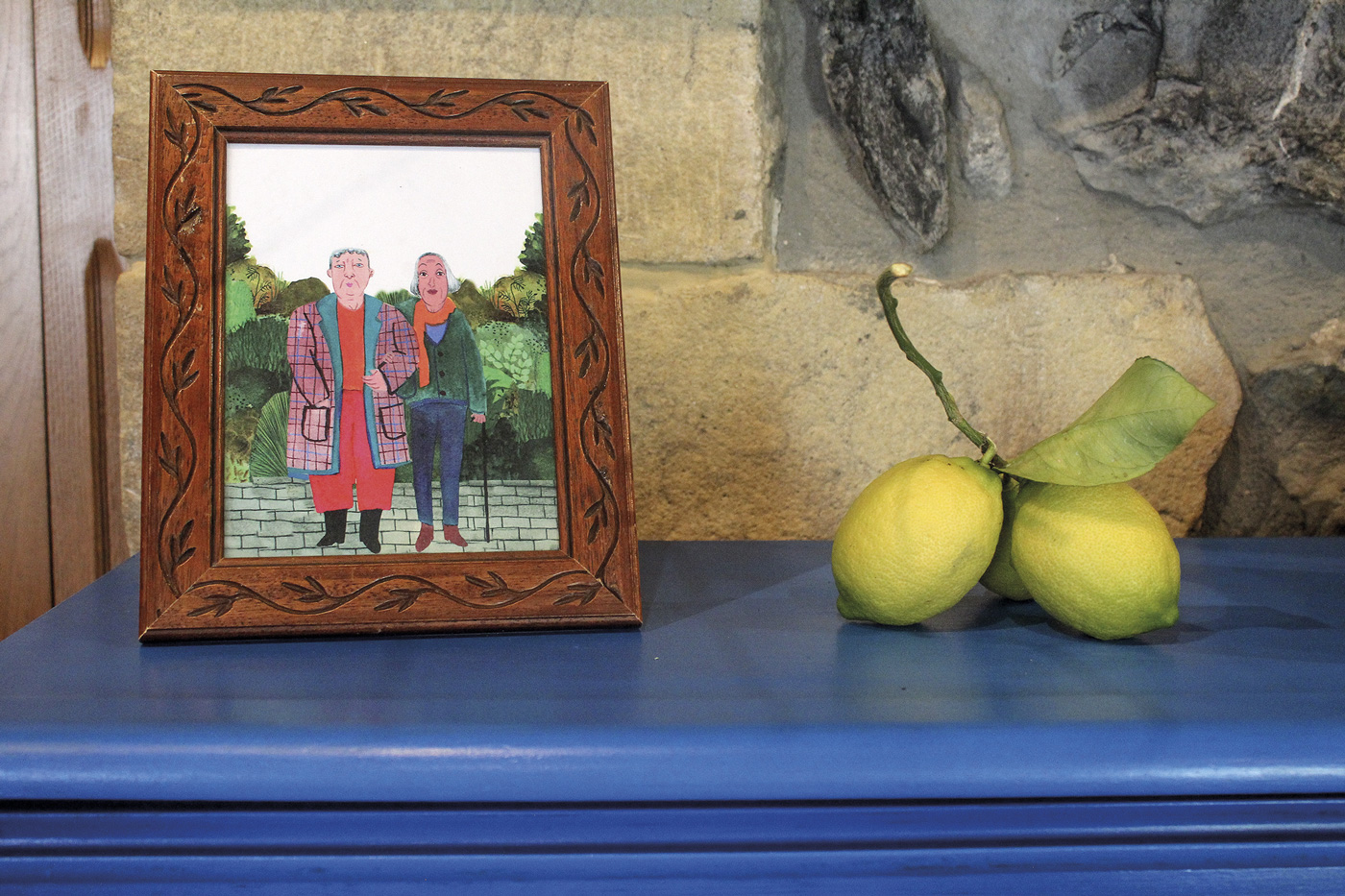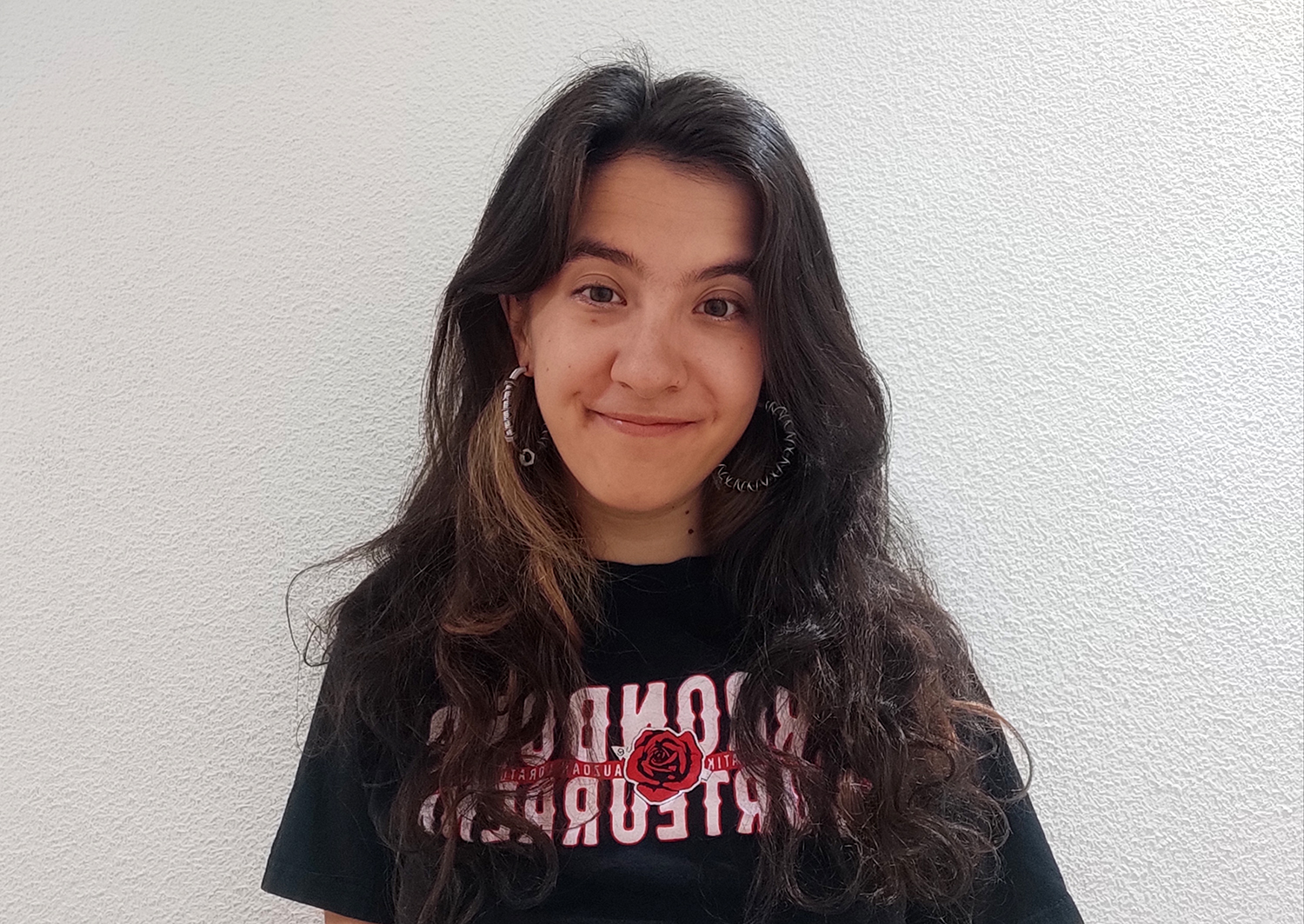"The system is assimilating dissident identities adapting to the heteroara"
- We've talked about the closet, the living forms of debate and struggle in the LGBT movement, the sexual liberation, the plumaphobia, the reformist and radical current, the construction of childhood identity, the living spaces... Egoitz A, from the cooperative Hiruki Larroxa. Albeniz and Ibai Fresnedo. Excuse: When does the scholarship wardrobe created by the Equality area of the City of Hernani end and which will be published soon at the request of the Equality Council? a book that covers the experiences of fellow citizens in the last 50 years. "We want to break the closets, but taking care of what's inside."

The interlocutors of the book have a different perception of the wardrobe: zone of repression, safe place… Are there many closets?
D. Egoitz A. Albaniz: Among us we have thought whether the collective experience of the cabinets is possible and we have come to the conclusion that it would be impossible, although we share the oppression that we live within the same structure. When does the wardrobe end? We have called the book, but perhaps the question should be “when does heterosexuality end?”, because it is heterosexuality that generates all this difference and violence that we live in. In the same way that it claims that the focus of male violence is represented in men rather than in women, with LGBT phobia we also do it: let's focus on heterosexuality, let's study the problems that heterosexuality poses to all dissidents left out of it estructura.Se gives you
a very powerful double moral: society gives itself intimate norms and then it is understood that in that environment you do not want to follow in any way. That's why there's the closet, because there's violence in that transition from the private to the public, and that should make us understand that the norms that society gives itself are very strict, that don't encompass all diversity.
Río Fresnedo: As it is a homophobic practice to point out to a person and say that he is Mariche, I would also like to make self-criticism: for the passion that awakens us the visibility of LGBT people in the struggle for sexual liberation, we sometimes give some pressure to the one who is still in the closet to get him out, and that is also violence. We cannot force very personal and intimate processes. Visibility must be based on powerful mutual care networks and deep self-defence pedagogy. That is, we want to break the closets, yes, but taking care of what is “inside”.
It is such a personal process that for some the protection is the closet and for others the jail. What a counterpart can experience the same concept.
Strawberry: I would say that it is more a continuum between jail and shelter, because our reality is multidimensional, we have relationships in many areas and what we can feel in some areas is refuge in another, and in a third there are no closets and we present ourselves freely. They're complex processes and they're all licit.
Albaniz: And in the closet there are people who can come in and out, but other people, because of their appearance, because of their expressiveness, because of their masculinity or femininity, they can't do it, they can't hide and they're always out, they live at all times a sign and a violence. This brings us to the question of whether we should not explode the closet, although it may contradict what was said above on visibility.
Strawberry: At the same time, closets are also political weapons, your desire, because sharing your closet with another cause, they will tell you “you didn’t know you were marictic”, but “I didn’t know you were heterogeneous either.” That is the game given by the closet and in my case it has sometimes been a political option not to share that information in a certain area, as it may be another way to remove the mask to the heteronorma.
Albaniz: For reasons that force you to stay or get out of the closet, it's interesting that when you go out once, you're awarded or crushed according to your identity, because the heteronorma itself privileges those who come out of the closet and lean towards the practices of heteronorma. Dissident identities are progressively assimilated to the system: it does not want women with beards living in the threesome, it wants an exemplary lesbian couple that forms a family, middle class and with little noise.
D. Egoitz A. Albaniz: "A people, by their appearance, by their masculinity or femininity, cannot conceal and is always out of the closet, lives at all times a sign and a violence"
I mean, be LGBT, but “in our style.” Do others give us the legitimacy to define our identity?
Albaniz: Legitimacy is social, but this social legitimacy derives from the parameters and criteria provided by the system itself, because the political, institutional and legal scope also defines what is legitimate and what is not (a parent who has just talked about childbirth, for example, that legally no such situation is foreseen).
We use words like tolerance, normalization and integration, but tolerance is built from power and legitimacy is the same: only some can legitimize you, those within the norm.
In fact, today concepts such as equality and diversity are politically correct, but have discrimination and oppression taken another form?
Strawberry: The discourse of the politically correct has emerged around the concepts of normalization, tolerance and integration mentioned, and since that discourse the institutions get medals, emphasizing that society is progressive and that we are increasing rights in the framework of rights. But symbolic and structural violence is still there, and because we can marry or have children, it doesn't mean we don't have LGBT phobia. It has taken another form, but the wolf covered in sheepskin is still there.
Albaniz: I don’t like to say that at this point in history we are worse or better, but that the context and the historical process have changed and LGBT phobia takes place in a different way. How politically correct is LGBT phobia today? Not bad! But we have not managed to eliminate the violence exercised by the whole underlying structure.
Strawberry: The very concept of LGBT phobia focuses only on those who are dissident sex or gender, and we need to look beyond these acronyms, because heteronorma affects all of us, all those who are outside those norms, such as heterosexual women.
.jpg)
The heterorule affects us all, but some more than others, right? If intersectionality is taken into account, some profiles suffer greater oppression than others.
Albaniz: Hiruki Larrox believes that it is necessary to take into account the intersectionality in any process, from the analysis of our daily experiences. Working from an intersectional point of view allows us to stop looking at oneself, understand that the experiences of violence are interrelated among us and that we are crossed, in one way or another, with other collectives, militancies and associations that are not directly related to our struggle. It is interesting to note that a capacity is being created to meet, to work together and to search for its own space within this relation of oppression and resistance.
Lumaphobia is a widespread phobia, even within the LGBT community.
Albaniz: Starting in 2008, the transfeminist movement will show that the struggle of feminism is, above all, the LGBT struggle, and lumaphobia is a clear reflection of patriarchy and machismo in particular. Among the Marichos there is also a phenomenon that we associate with misogyny: everything that approaches the feminine is something despicable, or undesirable, or passive. Well, being martyred should serve to rethink how our desire is shaped, what society we have, why we have had to pick up beatings… and at least we should not reproduce it. But among us we see more and more misogyny and more normative and masculine bodies. Is that what we were looking for? After being oppressed, after having suffered in adolescence, do we want to continue reproducing the machismo of society against what comes out of the norm of being a man?
The book presents an interesting dichotomy within the LGBT struggle: the reformist current – the struggle for the same rights as heterosexuals – vs the radical current – with the aim of revolutionizing the heterosexual regime.
Albaniz: The road is a radical trend, but in the meantime we have to live and regulate the rights so that they do not tread on us. I don't want marriage as an institution, but as long as it doesn't go away, I don't want people to have legal loopholes because they don't have the right to marry.
Strawberry: In fact, the radical approach is not contradictory to framework law, because it will always defend rights, the truth is that the reformist approach places the legal framework within heteronorma and not within the framework of fundamental human rights. Reformism proposes the inclusion in the heteronorma of those who are outside the heteronorma, establishing legal, social and legal mechanisms to do so. It is an assimilating vision and two known clashes are the rights to marry and to have children, but the radical trend emphasizes the need to wager on fundamental rights: housing, health, education… In
Euskal Herria there is a marked tension between these two approaches, in short, those of us who have a radical perspective support the marriage of equals, but the reformists are not going to fight for a non-binary society.
.jpg)
To the extent that you defend a radical vision, how do you perceive having to listen that the struggles of diversity harm the class struggle?
Strawberry: We have received devastating criticisms in recent years, that we are interclavian, liberal… and what we say is that the LGBT struggle is sexual liberation, that in that process of struggle and liberation we simultaneously defend all liberations, because they all have the same goal. In addition, the LGBT struggle has always been a movement with a class perspective, because the subjects and bodies that have aligned in this struggle have been the most precarious, marginalized and marginalized from the very beginning. As an organized left-wing and revolutionary movement, he has always acted around the Marxist, Leninist, Communist and Anarchist discourse. Those who use the opposite argument are making a gradation between fights, polarizing the debate and talking mainly about privileges. The weirdest thing is that it's not a new lawsuit, it's a cyclical, sterile vulture.
Albaniz: I can understand where criticism comes from because, like other struggles, capitalism is justifying LGBT struggle (through pink capitalism), but saying that queer movement is demobilizing the working class is not true. In any case, what we have pointed out from the LGBT movement is the shortcomings in class struggle in terms of sexual liberation (and machismo), which should serve to make self-criticism. We all have a lot to learn and that is why it is better that my struggle does not arise against your experiences but that there are meeting points and act constructively, because I can also say that in their struggle they are all white and middle-class.
Strawberry: The truth is that they criticize the identity struggles, but the criticisms they make are more typical of the identity policies they develop in the institutions: LGBT policies are emerging in the organizations, working as a single issue or as a single issue, from a capitalist approach, because they are not intersectional policies and it is a strategy of laundering policies based on liberalismo.El pink capitalism goes in the same direction: instrumentalists uphold the demands of
our trade. Bilbao Bizkaia Pride is a clear example of this. In addition, pink capitalism has taken the economic base of a profile it is interested in (bourgeois gay white man) and has created a specific industry, but it is not a reflection of the LGBT community.
The book discusses the genesis of the transfeminist movement of mines: they claimed that not biological women, but bodies opposed to heterogeneous women should be political subjects. The Trans Act, which is being bought in Spain, raises the same debate again.
Albaniz: It seems to me that it is a sterile and artificially imported debate, because for fifteen years we have not seen this debate here, which is suddenly said that transgender women are going to steal the sovereignty of women. The body does not do your kind, it is a debate that has long been overcome.
Strawberry: Even when Medeak made his approach, he had brotherhoods and resistance within feminism, but the debate has always seen the predisposition to coexistence and exchange of opinions. It seems to me that the polarization and toxicity that has emerged now comes from the state. In Hiruki Larrox, in the current context, we do not consider ourselves subjects of feminism, but we are situated in transfeminism, because we believe that the most interesting thing is to expand the political subject of feminism, not to be based on the essence, but on a political position. And our political position is clear: we want to destroy heteronorma.
Río Fresnedo: "When we are children, we begin to understand by insults not only what one desire or another is, but also the heteronorma itself. From the outset we are labeled out-of-the-box and from that label we must develop our sexuality"
In the book it is observed that the child who is not heterosexual, although sometimes still does not know it very well, is constructing his own identity often insulting and despising that identity from the beginning of others. How does this influence the construction of one's own identity?
Strawberry: Normally first comes the border and the norm, and then we build, and borders and norms bring violence, so we're born of violence. We began to understand by insults not only what a desire or another is, but also the heteronorma itself. We see it every day in schools: the child who has a certain gender expression will receive a homophobic insult before knowing what homosexuality is. We can't choose how to develop our sexuality, because we're labeled out-of-the-box from the very beginning, and from that label, we have to develop our sexuality.
Albaniz: And you have to keep in mind that these are very young people who have to learn very quickly strategies to survive.
On the other hand, what is most punished is gender dissent, not so much the orientation of desire. When they call you Págalo, they're not saying that you have sex with another kid, but that your gender expression is female, and that it's weak, it's coward and it's secondary in the symbolic order of patriarchy, again there's misogyny and machismo. The development of egalitarian and healthy relationships should be fundamental in education.
The book emphasizes the importance of the physical spaces that serve as a refuge for the collective to express as oneself the “habitable spaces”. Or are they at risk of becoming ghettos?
Albaniz: Anyone who criticizes ghettos has not wondered why he has had to create that space, perhaps the answer is that your people are not as open as you believed and that a space like this is necessary. It is known that it is important to have their own spaces, because the heteronorma still prevails in the structure of the cities, in the leisure model, in society…
Fresnedo: In this society a process of assimilation is set in motion so that we have a hetero lifestyle and incorporate to the norm, which necessarily leads us to create ghettos, because we need spaces where we can freely develop what we are. But at the same time, our goal must be the revolution of spaces with centrality, heterosexual spaces, the ability to incorporate into the center the practices that we develop in the liberating spaces. The two spaces are important because if you're always in your ghetto, you won't change anything.
Albaniz: And those spaces of their own also influence other hegemonic spaces: In Hernani the area of Carbonera was important for the mariconization and bollerization of the town, since its liberating practices were the starting point for doing many things in other spaces.
The Leioa School of Education was full of students last Wednesday because Samantha Hudson was coming. She is a transgender Mallorcan artist, singer and influencer born in 1999. The star of the People Singing Encounters had an endless line to give selfies and autographs, and his... [+]
1984an ‘Bizitza Nola Badoan’ lehen poema liburua (Maiatz) argitaratu zuenetik hainbat poema-liburu, narrazio eta eleberri argitaratu ditu Itxaro Borda idazleak. 2024an argitaratu zuen azken lana, ‘Itzalen tektonika’ (SUSA), eta egunero zutabea idazten du... [+]

























